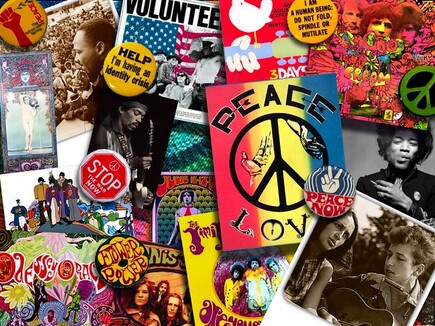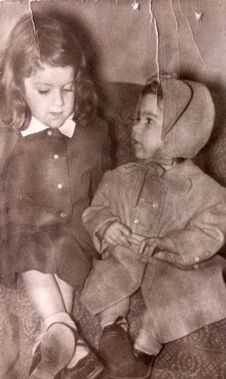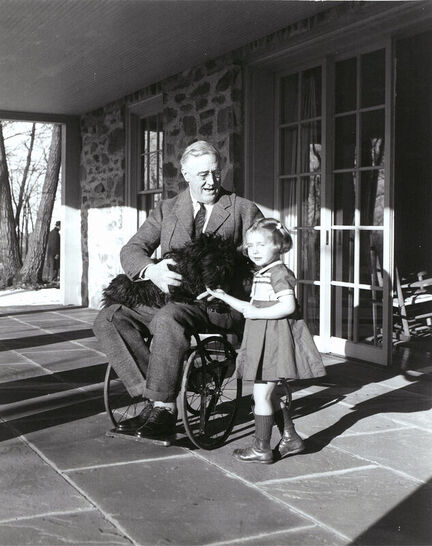all of the selves we Have ever been
|
0 Comments
 This is a week of reckoning, not only in Georgia, or the U.S. House of Representatives, or the Senate, or even the White House. This is a time of reckoning for the American people, a day to ask, “What is happening to us?” All of us. When I was a child, there was a saying, “Sticks and stones may break my bones, but words will never hurt me,” but, of course, some words did hurt. That saying was a child’s feeble response to bullying. We also tried the “I’m rubber, you’re glue; everything bounces off me and sticks to you” defense. It was something a victim might say in the moment, but, again, the words didn’t bounce; they stung. Nothing stuck to the bully, however; his damaged heart was coated in Teflon. Later, when I was a teenager opening my eyes to a wider world and to history, I studied the Holocaust in high school. I watched films and read books. How, I wondered, how could such a thing happen? The horrors were so grave, human behavior so atrocious. I could not grasp how an average citizen could become so monstrous in the treatment of neighbors, friends, and relatives. How could a leader convince an average person, a previously law-abiding person, to abandon his conscience and turn on his countrymen? As an adult social worker and therapist, I had the privilege of meeting European and Russian survivors of the Holocaust. The survivors I met were remarkable people. All of them shared how they once found the rumors of atrocities in their homelands to be unfathomable. All of them had believed that if they kept their heads down and obeyed the rules, did not draw attention to themselves, did what was asked, then right and decency would triumph. Except that it didn’t. Evil prevailed. After years of torment, the survivors were grateful to the Americans who saved them. When World War II ended, Americans settled on a belief that Hitler’s brand of evil was an anomaly, a thing of the past, “it can’t happen here” people said. In the weeks since the United States 2020 presidential election, I have felt paralyzed by the realization that it is happening here, here in the United States of America, the country that once saved the world for democracy. Prior to yesterday’s riots in the Capitol, I fretted over the bloodshed I feared was coming. My friends were more optimistic believing the worst was over. My fears this week have been informed by years of observation and study. There is a growing percentage of the population with a troubling personality type characterized by rigid thinking, an inability to consider opposing points of view, limited capacity for insight, impulsive behavior and poor self-regulation, people with only two settings--adulation or retaliation. As the need for adulation grows, the degree of retaliation escalates. These are people who become intoxicated by demeaning others. They become incapable of empathy. When psychiatrists and mental health professionals studied the imprisoned Nazi guards and elites awaiting trial at Nuremberg, the professionals determined that the guards and Nazi officials were incapable of empathy. That missing ingredient made all manner of horror possible--no shame, no regrets. No amount of facts, no album of photos, no film footage, no eyewitness report could get these prisoners to re-evaluate their actions. Their minds were rigid, their hearts impenetrable. They were made of Teflon and rubber—everything bounced off and stuck to someone else. Today, Twitter has replaced the millions of propaganda-filled leaflets that the Nazi’s once dropped from the sky like snow—the alternative news of that day. Social media has become a place where people can demean and destroy others, turn on their neighbors, and delight in mob rule. People are seduced by gossip and alternative facts on this contagious and intoxicating medium. Without direct eye contact, people lose the capacity to experience the emotional consequences of their words and actions. A light keystroke doesn’t have the same hard impact of throwing a punch to someone’s head, but it can have the same or worse effect. We are all complicit when we view, and share, and like, and tweet, and post these troubling words. It is not just the social media companies that need to police their platforms. Each of us needs to police ourselves. What goes on privately in the windmills of a person’s mind needs to stay there until properly evaluated. We need to consider the people we elevate to stardom and leadership. Social media has made it possible for people to become wealthy and powerful simply by being outrageous, liked, and viewed. At a time when educated, experienced experts are being denigrated, radio shock-jocks, and porn stars are sought for their opinions because they are “influencers” and have followers. We glue ourselves to television shows and celebrities that model degrading behavior in the kitchen, in the boardroom, or in the marriage proposal game. How did this become entertainment? What’s next? Humans being torn apart by hungry lions while we sit in the stands laughing and drinking beer? We are habituating ourselves to images, words, and behaviors that are re-shaping the human psyche and destroying our ability to feel empathy for others. People who complain about demeaning behavior on the team, in the workplace, or in social circles are often told to “let it go,” or “toughen up,” or “there’s nothing you can do.” Our parents once advised us to keep our hands and our words to ourselves. The defense, “she started it” was not acceptable. We were expected to find an exit ramp to the high road or seek appropriate help. Words do hurt. Words can be weapons. That is one of the reasons the pen is mightier than the sword. Words can cut and tear leading to a loss of limbs, a loss of life, bloodshed. Some people can shrug off the hateful words of another. Others seethe with anger and hurt and eventually use all of that negative emotion as rocket fuel on a galactic mission of destruction. We instruct preschoolers to use their words, but there is more to it than that. Choose your words before you use them. Speak truth to power and truth to evil. Avoid the temptation to join in the chatter, to like, to post, to tweet…if doing so demeans your own character or that of someone else. Hold leaders accountable for the character revealed by their words. Even a policy genius is not a worthy candidate if he or she has no conscience. If you would not want their worst behavior directed at you, don’t elect, pick, or hire them to be responsible for others. I hear from people that the situation is hopeless…”Oh, well,” they say. “There’s nothing you can do,” they say. “It’s hopeless,” they say. Hopeless cannot be the last word. The hopeless cannot have the last word. There are other words. Better words. If you are lost for words, start with these: Love your neighbor.  Does anyone speak 1960s? I need an interpreter. I am trying to crack the lyrical code. The 1960s have been described as tumultuous, turbulent, violent, and divisive decade. It was a time of dangerous incidents around the world and civil and political unrest at home. The country was engaged in the Cold War with Cuba and the Soviet Union. North Korea captured the USS Pueblo, a naval intelligence ship. The negotiations dragged on and on. Marchers and activists filled the streets of America’s cities demonstrating against racial injustices and the war in Vietnam. Teens and young adults no longer trusted parents, leaders, and government. A generation gap developed with traditional, conservative parents on one side of the divide and questioning, liberal, non-traditional, rock-and-rollers on the other side. Assassinations of politicians and civil rights activists filled the news. The 1968 Democratic National Convention in Chicago was surrounded by barbed wire, police, and protesters. I was just a child, but I was in the room when Walter Cronkite or Chet Huntley and David Brinkley delivered the news. Those black and white images are forever pressed into the pages of my mind. I will never forget the moment Walter Cronkite removed his eyeglasses and shed a tear as he reported that President Kennedy had been shot in Dallas. I watched my parents and other adults around me respond to each of these events. I didn’t understand it all, but I knew that it was serious and unsettling. Fast forward to 2020. The international, civic, and political climate seems similar. The big difference as far as I can tell is in the music. 1960s music is my favorite jam. Protest songs were gentle and thought-provoking and included songs like Sam Cooke’s A Change is Gonna Come or Bob Dylan’s Blowin’ in the Wind. A listener could feel the peace and love and calm the shattered nerves without selling out. But it was the '60s love songs that contained the mysterious mood elevator. If you can’t have peace, might as well have love. What was in that music? Someone spiked the punchline. These songs prove love has its own language, hence my need for an interpreter. In this contentious time, it is my civic duty to crack the code. Can’t we get some National Security folks workin’ on this? Here’s what I mean. Sing a few bars. You will feel the effects. Let’s start with this 1963 hit by The Crystals: I met him on a Monday and my heart stood still Da doo ron ron ron, da doo ron ron Some boy told me that his name was Bill Da doo ron ron ron, da doo ron ron In 1964 Manfred Mann had the hit Do Wah Diddy Diddy: There she was just a-walkin' down the street, singin' ' "Do wah diddy diddy dum diddy do" Snappin' her fingers and shufflin' her feet, singin' "Do wah diddy diddy dum diddy do" She looked good (looked good), she looked fine (looked fine) Moving along to 1967, a song from the musical Hair became very popular: Glibby gloop gloopy Nibby Nabby Noopy La La La Lo Lo Sabba Sibby Sabba Nooby abba Nabba Le Le Lo Lo Tooby ooby walla nooby abba nabba Early mornin' singin' song Good morning starshine! By 1968 the Beatles got in on the act: Desmond has a barrow in the marketplace Molly is the singer in a band Desmond says to Molly, girl, I like your face And Molly says this as she takes him by the hand Ob-la-di, ob-la-da, life goes on, bra La-la, how the life goes on Ob-la-di, ob-la-da, life goes on, bra La-la, how the life goes on I think I might have been at the wedding of Desmond and Molly Jones. When I sing along, I can practically remember dancing with the groom. If only we could get our da-doo-ron-ron’s to do-wah-diddy-diddy and nibby nooby abba nabba maybe we could ob-la-di, ob-la-da as life goes on. The answer to feeling better is in the music. I swear it is so. In-a-gadda-da-vida, baby!  I am trying to establish a daily routine, stick to a plan. My mind does not want to cooperate. It may have gone AWOL. My normally busy, creative brain is at a standstill. Usually full of questions and ideas, my head is now as empty as a jack-o-lantern. I open a window to the outside world and enjoy the incoming breeze. I order my mind to give me some sign of life My thoughts drift to a man I once met, a Holocaust survivor. He was a small boy about the age of five when the Nazis overtook his country. He witnessed so many horrors. His youth was spent surviving, surviving the terror as family members were shot and raped in front of him. He survived the ghettos and a youth spent on the run and in hiding. Fear and starvation were his constant companions. By the time the war was over, the boy was a teenager. As he waited in a new kind of camp to be re-settled, the boy liked to wander the streets of town looking in windows. He enjoyed watching people work and shopkeepers waiting on customers. He relished the sights of families gathering for meals, or groups of heads bowed in prayer, men reading newspapers, and mothers embracing their children. You would think a youngster who had witnessed so much horror would have lost his innocence along with his youth, but this man retained a sweet, childlike craving. He told me that when the war ended, he was left “so hungry for people.” He looked into the windows as a student of life, trying to understand how people were meant to live. What he saw filled him with hope and joy and determination. I think of this man often. He and his stories give me courage, hope and perspective. As I think of him today, I realize that my head is not empty, but that I, too, am hungry for people. While my situation in no way compares to what this man went through in war, the current isolation leaves me with a yearning for others and the shared way in which we once lived. Technology has been a godsend during this pandemic, but smartphones, tablets, and computers are not enough. The current that runs through our devices pales to the surge of electricity that runs through us when we pray aloud together, share a big meal, or do productive work side-by-side. Facetime with the grandchildren is a technological miracle, but it is no substitute for cuddling them in our arms. The feeling of delight and anticipation when preparing Sunday dinner for a gathering family cannot be compared to even the most delicious take-out order. The infusion of learning, the lights that come on inside us when we stand beside a talented colleague and watch them work is far more exhilarating than a YouTube video. Man was not meant to live alone. When the Creator saw that man was lonely, He gave him a partner. Together the man and his partner created the family of man. When we are together, we share the warmth of the divine spark that it is in each of us. That is a heat that cannot be reproduced by technology. Right now I feel like the world is in a universal time-out. Perhaps we all have been sent to our rooms to think about what we have done. We have orders not to come out until we learn how to get along. In many sectors, it seems to be working. I plead to be let out. I promise to behave, to do better, and besides, I’m starving. My head is not empty. It is hungry. Hungry for people.  Often at the end of a news day, I find myself with the urge to weep. On those days, the world seems so dark, behavior so deplorable. On one such day, I confided in a friend about my emotions. She reminded me that we have lived through other dark times. I reflected on all of the years of my life. Indeed, we have lived through other dark times. There was the war in Vietnam and battles for civil rights, women’s rights, rights of the disabled. Young people were down on the establishment. A president was impeached for campaign shenanigans. HIV and AIDS, 09/11, Ebola…In the live action drama, the list of things that can go wrong is endless. In the still life of memory, everything turns out okay. It was a better time, we say. We long for the good old days. But the thing that makes the good old days good, is that they are over. Done. Finished. Complete. We know how that story ended. We can identify the villains and lay claim to the heroes. All of the story tellers may not have lived happily ever after, but they did live to tell about it. And with time and telling, they developed perspective. Things turned out okay. The worst that was in us fades from memory, while we glorify that which was best. The best that was in us is what stands the test of time. A revisionist history? Perhaps. The emergence of the coronavirus has us all worried. Right wing, left wing, center, we are all the same in this. The people we normally turn to for answers and for cures are as vulnerable as the rest of us. Uncertainty is the worst of feelings. Do we go left? Go right? Stop or keep marching? We don’t know how this story will end. Some days it feels as though we have been sucked into a science fiction novel where we are being transported to the dark past. We have visions of the plague. Though we don’t really know what that was like, we imagine the middle ages with bodies piled high on the streets. We forget that in other parts of the world, these types of diseases still ravage communities. We thought we lived in a better zip code, a more advanced time where and when these things don’t happen, but we are forced to face the fact that the world is now all one giant neighborhood. Mother Nature still keeps secrets. As I watched the news reporting on the coronavirus last evening, I thought about my mother and her brother, Toni. Both survived polio. My mother went on to re-visit her memories of that experience as she aged and struggled with post-polio syndrome. I try to imagine what a time it was, that period before the polio vaccine--the paralysis, death, disability, the fear that hounded people day and night for years. How the summer months we think of as a time of relaxation became a time of terror for families. Polio was a scourge on every land. Even a president was affected. FDR’s legs were paralyzed. Though he did his best to conceal his use of a wheelchair, it was from a wheel chair that he led us out of the Great Depression and through WWII. In his 1933 inaugural address, FDR was the one who said, “The only thing we have to fear is fear itself.” That story concluded with the end of the Great Depression. World War II ended as well. A vaccine was found for polio, and in the process people exhibited ingenuity and generosity. The March of Dimes was founded and went on to do many noble deeds in the world. When we look back, were those good old days? What should our individual and collective response be in times like these? Will fear reduce us to our worst selves? Will denial bring forth our most careless selves? Can we choose the selves we will become? History has shown that even through our tears, we are capable of harnessing our fear as fuel. Through calm, thoughtful, and deliberate collective action, extraordinary things can happen. At the end of the news day, when I am inclined to weep, I will try to think, instead, of the good old days. |
AuthorLilli-ann Buffin Archives
April 2024
Categories
All
|

 RSS Feed
RSS Feed